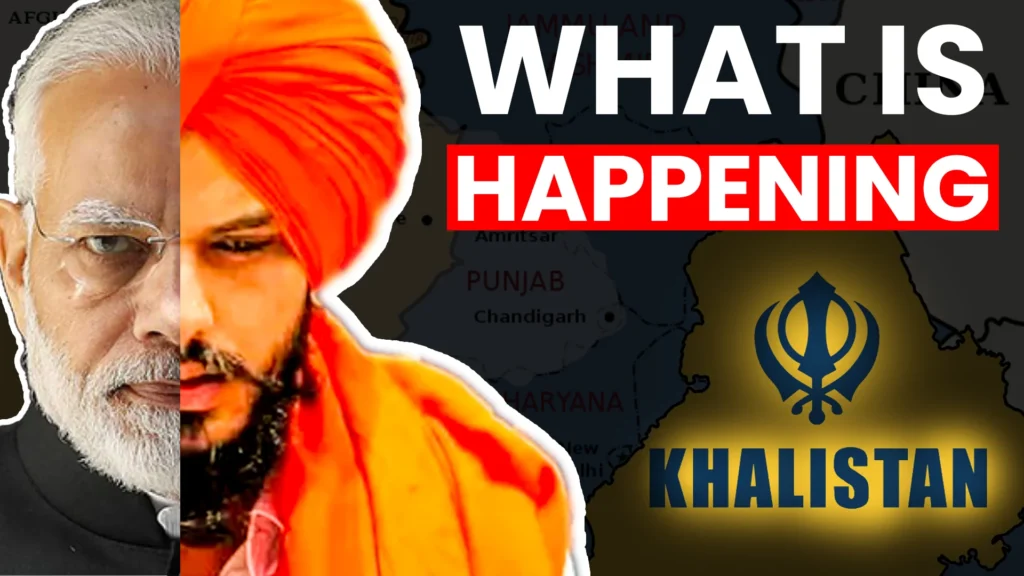The idea of Khalistan, the vision of an independent Sikh state, continues to resonate with some Sikhs, even today in 2024. While the demand for Khalistan is rooted in history and shaped by events like the 1984 attack on the Golden Temple, the desire for an independent Sikh state also reflects a deep connection to Sikhism, its values, and the community’s sense of justice, freedom, and cultural preservation. Let’s dive into why some Sikhs still support Khalistan today and explore the role of Sikhism in this movement.
The Core of Sikhism: A Faith of Equality and Justice
To understand why some Sikhs support Khalistan, it’s important to first recognize the core values of Sikhism. Sikhism is a religion founded in the 15th century by Guru Nanak Dev Ji and emphasizes the principles of equality, justice, and service to others. Sikhs are taught to be honest, kind, and compassionate, and to live their lives based on the teachings of the Guru Granth Sahib, the holy scripture of Sikhism.
Sikhs take their faith seriously. They are committed to values like seva (selfless service), simran (meditation on God’s name), and sangat (community). Sikhism teaches that all people are equal, regardless of their race, religion, or background, and it encourages Sikhs to fight against injustice and oppression.
Because of these values, many Sikhs feel a strong sense of duty to protect their culture, religion, and way of life. They believe that if they were able to govern their own land, they would be better able to live according to these principles, free from the fear of persecution or oppression.
Why Sikhs Still Want Khalistan in 2024
- Historical Grievances and Promises Unfulfilled: Many Sikhs feel that the promises made to them at the time of India’s independence in 1947 have not been fulfilled. They were promised protections for their culture, language, and religion, but many feel that these promises were ignored or forgotten. Instead, they believe that the Sikh community has faced neglect and discrimination from the Indian government, especially in areas like religious freedom, economic rights, and political representation.
- The 1984 Attack on the Golden Temple: The attack on the Golden Temple in 1984 remains a powerful symbol of oppression for many Sikhs. The operation, ordered by Prime Minister Indira Gandhi, was intended to remove militants who had taken refuge in the temple, but it also resulted in significant damage to the holiest site in Sikhism and the deaths of many innocent people. The subsequent anti-Sikh riots in which thousands of Sikhs were killed only deepened the anger and mistrust between the Sikh community and the Indian government. For many Sikhs, the 1984 events were a turning point, cementing the belief that they could not rely on the Indian government to protect their rights. These events reinforced the idea that Khalistan, as an independent Sikh state, might be the only way to ensure their security and the protection of their culture and religion.
- Desire for Autonomy and Control Over Resources: Punjab, the region where most Sikhs live, has long been the center of the Khalistan movement. Many Sikhs in Punjab feel that the state does not have enough control over its resources, such as land and water. Punjab is a rich agricultural area, but many Sikhs feel that the resources are not being used in ways that benefit them, and that they are being controlled by the Indian government in a way that does not serve their needs. The call for Khalistan, therefore, is also tied to economic autonomy — the belief that the people of Punjab would have a better chance of thriving if they controlled their own resources and government.
- Protection of Sikh Identity: Sikhism has a unique culture and way of life. Sikhs take pride in their distinct identity, which includes their language, religious practices, traditions, and values. They have a strong sense of pride in their heritage, and many fear that their culture might be lost or diluted if they continue to live under a government that they feel does not respect their unique identity. The idea of Khalistan represents the hope that Sikhs could preserve their culture and faith in their own independent state, where they could freely practice their religion and ensure their children grow up with the values they hold dear.
- Global Sikh Diaspora: Sikhs around the world, particularly in countries like Canada, the United States, the United Kingdom, and others, continue to support the idea of Khalistan. The Sikh diaspora is an important part of the movement because many Sikhs abroad feel a strong connection to their roots in Punjab and a sense of solidarity with those who continue to face challenges in India. This global support for Khalistan has kept the dream alive, especially among younger generations who may not have lived through the traumatic events of 1984 but still feel the need to stand up for the rights and dignity of their community.
- Political and Social Marginalization: Even in 2024, many Sikhs feel marginalized and excluded from the political and social mainstream of India. Some Sikhs argue that the Indian government, at times, treats their community as second-class citizens, failing to address their concerns adequately. This sense of exclusion has fueled the desire for a state where they can govern themselves and make decisions based on their own needs and priorities.
The Sikh Community’s Struggle for Justice and Peace
Despite these challenges, it’s important to note that the Khalistan movement is not the only way Sikhs are trying to address their issues. Many Sikhs are deeply committed to peaceful activism and justice. Sikh organizations and leaders within India continue to advocate for greater religious freedom, human rights, and fair treatment for the Sikh community, working through political channels and legal avenues to make their voices heard.
Moreover, Sikhism places a significant emphasis on peace and tolerance. Sikhs believe in working toward a better future through service to humanity and through efforts to eliminate oppression, injustice, and inequality. While the call for Khalistan represents a desire for self-determination, it is also part of a larger struggle for freedom and justice for Sikhs and for all oppressed people.
Conclusion: The Future of Khalistan
In conclusion, while not all Sikhs support the idea of Khalistan, the movement remains a symbol of hope and resistance for many who feel that their rights and dignity have been overlooked or denied. For these Sikhs, Khalistan represents not only a political goal but also a spiritual aspiration to live freely according to their faith, culture, and values.
Sikhism is a faith of great beauty, based on the principles of equality, justice, and service. The dream of Khalistan is rooted in a desire to protect and nurture those values, ensuring that future generations of Sikhs can live in a society that respects and celebrates their unique identity and way of life. While the path toward Khalistan is uncertain, the struggle for justice and freedom continues, shaped by the experiences, hopes, and aspirations of Sikhs both in India and around the world.



